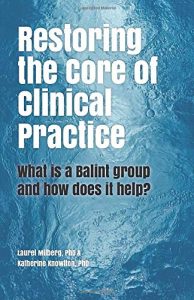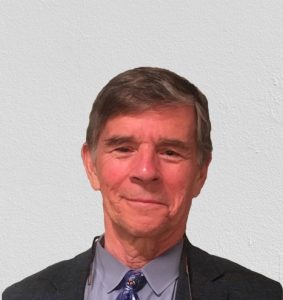Randall H. Paulsen, MD, is BPSI Faculty Member. His remarks below originally appeared in the Fall 2019 issue of the Hanns Sachs Library Newsletter, which can be read here.

Human relationships and the desire to make a difference motivate people to go into health care professions. When those motivations get swamped by the requirements of practice, the ground is laid for burnout. Trainees may become less empathic or even develop rigid habits of self-protection instead of professionalism. Balint groups are one answer. They focus on practitioner-patient relationships, and restore empathy for both people, helping with self-care and care of others. Whether you think in terms of left-brain/right brain, convergent and divergent thinking, or fast thinking and slow, Balint groups restore what’s missing. By describing Balint groups and their effects this volume provides a smart look at how crucial it is to practice with one’s full mind and how to make room for that in the culture of health care. “This is an excellent introduction to the theory and practice of a Balint group. Both authors have been President of the American Balint Society which traces its lineage back to Enid and Michael Balint. They do an excellent job in describing the difference between a Balint group and a psychodynamic or Tavistock group. It is helpful for all clinicians looking to conduct safe, but satisfyingly deep learning and support groups for clinical providers.”

Randall H. Paulsen, MD, is a psychiatrist, Training and Supervising Psychoanalyst, and past President of BPSI. He is an Assistant Professor of Psychiatry at Harvard Medical School and currently supervises and consults at Brigham and Women’s Hospital. His career has been focused on applied psychoanalysis, in directing inpatient and day hospitals at Tufts NEMC and Mt. Auburn Hospital (1981–1987), in developing primary care psychiatry as a component of Health Care Associates at BIDMC (1987–2000), and in facilitating a long-term Balint group for physicians. He was the mind-body consultant at The Osher Clinical Center at BWH where he also led Mindfulness-Based Stress Reduction courses (2002–2018). He recently shared his views on psychoanalysis as a subjective science in health-care, human development, and relationships in an interview to Harvey Schwartz, MD, on the IPA’s “Off the Couch” podcast. Follow this link to listen:
***
The opinions or views expressed on the Boston Psychoanalytic Society & Institute (“BPSI”) social media platforms, including, but not limited to, blogs, Facebook posts and Twitter posts, represent the thoughts of individual contributors and are not necessarily those of the Boston Psychoanalytic Society & Institute or any of its directors, officers, employees, staff, board of directors, or members. All posts on BPSI social media platforms are for informational purposes only and should not be regarded as professional advice.
BPSI does not control or guarantee the accuracy, relevance, timeliness or completeness of information contained in its contributors’ posts and/or blog entries, or found by following any linked websites. BPSI will not be liable for any damages from the display or use of information posted on its website or social media platforms. BPSI cannot and does not authorize the use of copyrighted materials contained in linked websites.

